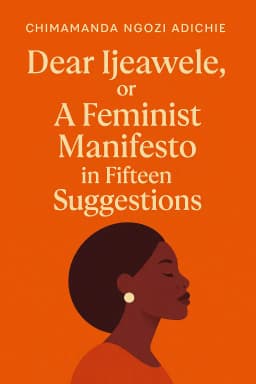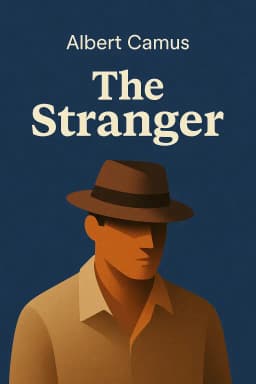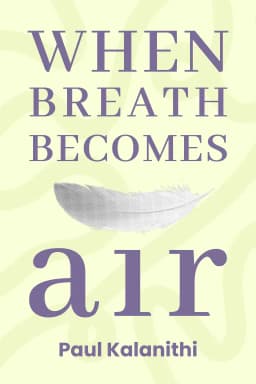
The Epicurean Antidote
Golden Hook & Introduction
SECTION
Michael: Most people think the key to happiness is adding more: more money, more experiences, more stuff. What if the ancient secret is actually subtraction? Not just decluttering your closet, but decluttering your fears, your desires, and even your idea of the gods. It's a radical thought. Kevin: Subtraction? That sounds like Stoicism or minimalism. I thought Epicureans were all about addition—more wine, more feasts, more everything! The word 'epicurean' literally means a connoisseur of the good life. Michael: Exactly the misconception! And that's why Catherine Wilson's book, How to Be an Epicurean, is so brilliant. She's a serious philosopher, a Fellow of the Royal Society of Canada, who argues that we've had Epicurus wrong for 2000 years. The book has received praise for being intelligent and readable, but it's also stirred up some debate. Kevin: Oh, I like a little controversy. So what’s the real story? Michael: Wilson’s point is that true Epicureanism isn’t about hedonism; it's about achieving a profound sense of tranquility by getting back to basics. And the most basic thing, for Epicurus, was understanding the nature of reality itself.
The Atomic Worldview: Why Everything is Perishable (Except Atoms)
SECTION
Michael: And for Epicurus, 'reality' meant one simple, but world-changing idea: everything in the universe is made of atoms and empty space. That's it. No gods pulling the strings, no spiritual realm, just particles in motion. Kevin: Okay, hold on. An ancient Greek came up with atomic theory? That’s impressive. But it also sounds a bit… bleak. If I'm just a temporary collection of atoms, and my soul just disperses when I die, where's the meaning in any of it? Doesn't that make the fear of death even worse? Michael: That's the genius of it! Epicurus flips the script. He says death is 'nothing to us.' His logic is airtight. He has this killer line: 'When we are, death has not come, and when death has come, we are not.' You can't experience being dead. So why fear it? This thinking completely removes the terror of divine judgment or an eternal afterlife. Kevin: So you’re not worried about hellfire or disappointing some deity. You’re just… done. Like a computer being unplugged. Michael: Precisely. And this idea was so radical, so potentially disruptive to the power structures that relied on fear of the afterlife, that it was actively suppressed. The book tells this incredible story of the loss and rediscovery of Epicurean texts. Many of Epicurus's original writings were lost. A huge library of them was buried in Herculaneum by the eruption of Mount Vesuvius in 79 CE. It wasn't until the 17th and 18th centuries that these ideas were fully rediscovered and revived, influencing everyone from scientists to the framers of the US Constitution. Kevin: Wow. So this wasn't just some quaint philosophical idea; it was seen as genuinely dangerous. I can see why. It dismantles a major tool of social control. Michael: To make it less abstract, Lucretius, a Roman poet who was a major Epicurean, used these beautiful, everyday observations. He asks you to look at a ring you wear every day. Over years, it gets thinner on the inside. You never see the particles of gold leaving, but you know they are. Or think of water dripping on a stone, eventually hollowing it out. Or a stone street worn smooth by countless feet. These are visible proofs of an invisible, atomic reality. Kevin: That’s a great analogy. It’s like seeing the sole of your favorite sneakers slowly disappear. You don't see the rubber molecules flaking off, but you know it's happening. It makes the abstract idea of atoms feel very real and personal. Michael: And he uses another brilliant analogy: letters and words. The Roman alphabet has only 26 letters. By themselves, they're just simple shapes. But when you combine them, you can create millions of words and infinite sentences that can express love, or declare war, or build a scientific theory. The world is the same. A few types of simple atoms, when combined in different ways, create all the complexity we see—fire, water, trees, us. Kevin: Okay, I’m starting to get it. The point isn't that life is meaningless because it's temporary. The point is that its meaning has to be found here and now, in this specific arrangement of atoms, because this is the only shot we get. No heaven, no hell, just... this. Michael: Exactly. It’s a philosophy of radical presence. And if this life is all there is, the next logical question becomes: how do we make it as good as possible?
Redefining Pleasure: The Art of Living Well (Without Being a Hedonist)
SECTION
Kevin: Right. And if this is all there is, I can see why people would jump to 'let's party!' The YOLO of the ancient world. But you're saying that's not the Epicurean way. So what is this 'pleasure' they're really talking about? Michael: This is the heart of the book and the biggest myth it busts. For Epicurus, the highest pleasure wasn't a wild, sensory overload. It was a state he called ataraxia. Kevin: Ataraxia. What does that actually feel like? Is it just being numb or zoned out? Michael: Not at all. It means tranquility, or freedom from mental disturbance—no fear, no anxiety, no dread. Paired with that is aponia, which is the absence of physical pain. The combination of those two states—a calm mind in a comfortable body—is the pinnacle of Epicurean pleasure. It's a baseline of serene contentment, not a series of ecstatic peaks. Kevin: So it’s less about chasing highs and more about eliminating lows. Michael: Perfectly put. Wilson uses a fantastic, simple example from the book: the pinching shoes. Imagine you have a pair of shoes that you paid good money for, but they pinch your feet just a little bit. You keep wearing them, enduring this constant, low-grade discomfort. An Epicurean would say true pleasure isn't found by buying a new, even more expensive pair of shoes. It's found by simply getting rid of the pinching ones. The relief, the absence of that nagging pain, is the pleasure. Kevin: Oh, I know that feeling. It’s like finally fixing that wobbly table leg that’s been driving you crazy for months. The joy comes from the problem being gone. So, they were basically the Marie Kondo of ancient philosophy: if it doesn't spark tranquility, thank it and let it go. Michael: That's a great way to put it. And this is why Epicurus's own life looked so different from the stereotypes. He founded a school called 'The Garden' just outside Athens. It was a retreat from the chaos of the city. But it wasn't a den of indulgence. It was a community of friends—men, women, even slaves, which was revolutionary at the time—who lived simply. Their greatest pleasures were shared meals, which might be just bread and cheese, and deep conversation. Kevin: So the highest good wasn't a feast, but friendship. That’s a pretty radical idea, especially in our hyper-individualistic, career-focused world. Epicurus literally said, 'Of all the things which wisdom provides to make us entirely happy, much the greatest is the possession of friendship.' Michael: It's a total inversion of our modern 'treat yourself' culture. The book points out how 'pleasure merchants'—advertisers, social media algorithms, the whole consumer economy—are designed to exploit our anxieties. They sell us things that provide a fleeting jolt of joy but often lead to more long-term pain, like debt, clutter, or poor health from eating junk food. Kevin: Right! It’s the difference between the dopamine hit from a new notification on your phone and the deep, quiet satisfaction of an evening with good friends where no one is looking at their phone. One is a spike, the other is a state of being. The Epicureans were playing the long game for happiness. Michael: They were. It's about prudence. They would ask: will this short-term pleasure lead to greater long-term pain? If so, it's not worth it. It’s a rational, calculated approach to a good life.
Justice by Agreement: Building a Better Society, Epicurean-Style
SECTION
Michael: And that focus on friendship and avoiding harm scales up beautifully into a full-blown political philosophy. If there are no gods handing down commandments from a holy mountain, and no 'natural laws' written into the fabric of the universe, then where do we get our morals from? Kevin: That’s the big question, isn't it? If it's all just atoms, why shouldn't I just do whatever benefits me, even if it harms others? Michael: The Epicurean answer is both simple and profound: justice is a social contract. It's a human convention, an agreement we make to 'neither harm one another nor be harmed.' Morality isn't a divine command; it's a practical arrangement for mutual benefit. Kevin: So it's not about being 'good' for the sake of being good. It's about agreeing to a set of rules because a society without them—where everyone is constantly afraid of being robbed or attacked—is a miserable, anxiety-ridden place for everyone. Michael: Exactly. And you can see this line of thinking echo through history. The book notes that Thomas Jefferson was a huge fan of Epicurus. When he wrote 'life, liberty, and the pursuit of Happiness' into the Declaration of Independence, that was a deeply Epicurean sentiment. The purpose of government isn't to serve a king or a god, but to create the conditions for its citizens to live tranquil, flourishing lives. Kevin: This is where I can see the controversy that some reviewers have mentioned. Is the author, Catherine Wilson, just mapping her own modern political views onto these ancient texts? Or was Epicurus really a proto-social-justice warrior? Michael: That's a fair question, and the book gets mixed reviews on this point. But Wilson argues the logic is inherent in the philosophy. If the ultimate goal is to minimize pain and maximize tranquility for the greatest number of people, you naturally arrive at policies that promote the public good. She uses a modern example: the debate over gun ownership. Kevin: How would an Epicurean approach that? Michael: They wouldn't argue from an abstract, almost sacred 'right to bear arms.' They would be pragmatic. They'd look at the evidence. Does easy access to firearms in a society lead to more pleasure and less pain overall? Does it reduce fear and anxiety, or does it increase it? The data from a society with high gun violence suggests it leads to far more suffering than security. For an Epicurean, the 'just' policy is the one that demonstrably reduces harm. Kevin: So morality isn't about following a fixed set of ancient rules. It's about constantly re-evaluating our social agreements and asking: 'Is this convention still working to reduce suffering for everyone involved?' That's a powerful and frankly demanding way to think about building a society. It means nothing is sacred just because it's tradition. Michael: Nothing. Every law, every right, every tradition is up for review based on its real-world consequences for human well-being. It’s a philosophy that demands we stay awake, pay attention, and be willing to change our minds based on evidence.
Synthesis & Takeaways
SECTION
Michael: And that really brings it all together. Epicureanism isn't a fragmented set of life hacks. It's a coherent and elegant system. It starts with a radical view of a godless, material universe, which logically leads to a redefinition of pleasure as tranquility, which in turn provides a rational foundation for a just society built on mutual agreement and harm reduction. Kevin: It’s a complete package. It gives you a cosmology, an ethics, and a politics. And what’s striking is how modern it feels. The focus on evidence, the critique of consumerism, the foundation of morality in mutual consent—it all feels like it could have been written yesterday. Michael: It really does. It’s a philosophy that empowers you. It says you don't need to wait for an afterlife for rewards, and you don't need to fear eternal punishment. The power to create a good life and a just world is right here, in our hands. Kevin: It leaves you with a big question, though. A really practical one. Are you pursuing fleeting pleasures that actually create long-term anxiety, or are you actively working to remove the sources of pain and disturbance from your life and the lives of others? It's a simple question with profound implications. Michael: A perfect summary. And it can start small. We'd love to hear what our listeners think. What's one 'pinching shoe' in your life—a small, persistent annoyance you've been tolerating—that you could get rid of this week? Let us know. Kevin: This is Aibrary, signing off.









